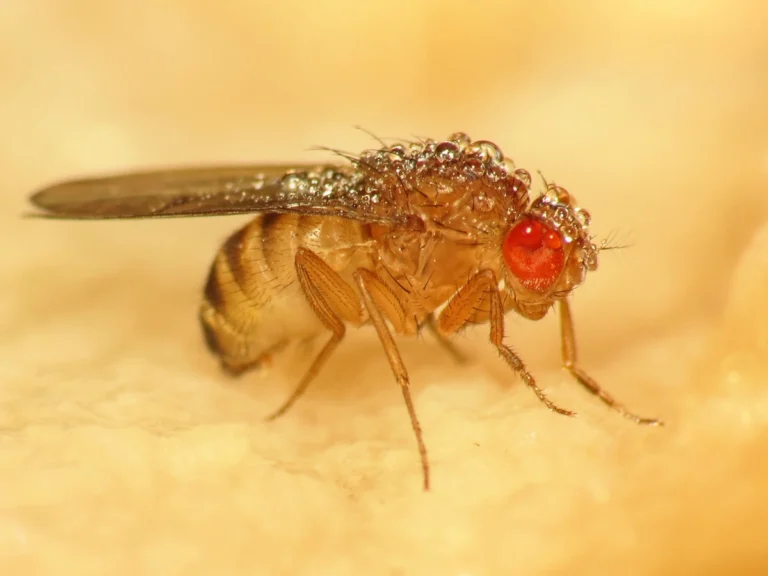Table of Contents
ToggleMaggots, commonly known as fly larvae, mainly originate from houseflies and bluebottle flies. Commonly found in trash, feces, and carrion, these are spots where mature flies lay eggs. The larvae start feeding upon hatching, usually within 24 hours. Maintaining cleanliness and regular trash disposal can prevent indoor maggot infestations.
The Origin of Maggots
Maggots signify the first stage of a fly’s life cycle. These tiny, cream-colored creatures are simply fly larvae. Ranging between 3 – 20 mm in length, they use tiny hooks around their mouths to obtain food. Remarkably, maggots have light-sensitive cells across their bodies, aiding in environmental perception. After feeding for 3-6 days, they progress to the next developmental stage.
Flies lay eggs that hatch into maggots. Once the pupal stage is complete, maggots mature into flies. It’s a misconception that maggots appear spontaneously. Many times, we fail to notice the omnipresent flies and their eggs, which can hatch in large numbers daily.
A Fly’s Life Cycle
Flies lay 75 -150 eggs in places like trash or decaying food, which turn into maggots within 7 – 24 hours. If flies are nearby, expect potential maggot presence due to their prolific egg-laying habits.
- A female fly, living roughly a month, lays up to 2,000 eggs.
- Maggots appear a day post egg deposition.
- Initially observed when they’re 3–9 mm long, they can grow up to 20 mm.
- After feeding for 3 to 5 days, they undergo further developmental stages, with the entire cycle lasting 14 to 36 days.
Detecting Maggot Activity
Increased fly activity often hints at concealed maggots. Inspecting and cleaning areas like trash bins or kitchens is crucial. Additionally, watch for rotting food or deceased rodents within the house structure. Also, check outside bins near entrances as they could be breeding grounds.
Maggot Diet Preferences
Maggots primarily feed on leftovers, pet food, dead animals, and meat sources, eating continuously until they pupate.
Preventing Flies and Maggots
Maggot prevention revolves around cleanliness and fly control. Essential steps include timely trash disposal, outdoor trash bin cleaning, using bleach for sanitation, and ensuring sealed storage of pet food, compost, and trash.
Several strategies can further reduce the risk:
- Eliminate Food Sources: Store food securely and manage waste.
- Pet Food Management: Replace regularly and keep covered.
- Trash Bin Maintenance: Clean with bleach and ensure lids are secure.
- Seal Your Compost Bin: Ensure it’s airtight.
- Maintain Yard Hygiene: Clean after pets to prevent infestations.
- Check Window Screens: Repair any damages to prevent entry.
- Catch Flies: Use traps to intercept flies before they lay eggs.
- Plant Fly Deterrents: Certain plants, like lavender and marigold, repel flies.
- Electronic Fly Traps: Use cautiously indoors as they eliminate various flying insects.
- Use Fly Swatters or Papers: Effective traditional methods.
How to Minimize the Risk of Maggots?
- Ensuring flies can’t access your garbage is pivotal. Wheelie bins are more efficient at preventing fly access than black garbage bags.
- Using fly spray can help deter flies, but homeowners must buy it.
- Limit food waste.
- In warmer climates, consider a weekly collection of food waste by alternating between the green and grey wheeled bins.
- Always cover food indoors, including pet food, to prevent flies from laying eggs.
- Rinse non-recyclable food packaging before disposal to decrease odor.
- Expel air from bags and seal them tightly.
- Double wrap food remnants, pet waste, and diapers.
- If feasible, keep the bin away from direct sunlight.
- Always shut the bin lid.
- Install insecticidal strips in your bin to deter flies.
- Consider Citronella, a natural repellent for gardens, to ward off flies.
- Clean recycling materials, such as food cans, bottles, and jars.
- Empty ‘solids’ from disposable diapers into the toilet.
- Ensure a tight-fitting lid on your kitchen trash can; ‘swing top’ lids are less effective.
Managing Maggots in Bins
Address maggots in bins by:
- Using fly-spray.
- Applying boiling water and bleach.
- Most maggots will vanish once the bin is cleared. Afterward, clean the bin using disinfectant or bleach with ample water. Fragranced cleaning products can repel flies.
- If you opt against washing your bins, seek a professional bin cleaning service in local directories.
Eliminating Maggots and Flies
For infestations, consider:
- Boiling water, possibly with added bleach or hydrogen peroxide.
- Dish soap, containing borax, acts as a repellent or insecticide.
- Natural repellents include lavender, vodka, and apple cider vinegar.
- For chemical treatments, products with permethrin, like Raid, are effective.
- Alternatively, physically removing the infested material and sealing it in a trash bag is effective.
Maggot FAQs
Yes, maggots are the larvae of flies, primarily the housefly, blue bottle fly, and blow fly species in the U.S. After several days, maggots pupate and mature into flies.
Maggots can be eradicated using hot water, bleach, or pesticides. Pesticides, like permethrin, target both flies and maggots directly.
Maggots, being fly larvae, emerge from eggs laid by adult flies in secure areas with abundant food. Common breeding spots include trash bins with decaying food, sinks with residual food waste, and pantries with perishable goods.
Regular cleaning and prompt trash disposal can effectively deter maggots. Eliminating food sources and maintaining cleanliness deters egg-laying and subsequently, maggot infestations.
While maggots are unsightly, there’s no evidence indicating they’re harmful. Flies are ubiquitous, regardless of the waste collection system. Prioritize waste management and adhere to the recommendations above to prevent fly access.
Despite their appearance, maggots have positive roles:
- Favored as bait for fishing.
- Used medically to clean stubborn wounds.
- Forensic scientists utilize them to estimate time of death.
Trust in the Experts at On Demand Pest Control
Pests are persistent, crafty, and can compromise the safety and tranquility of your home. While there are measures you can employ, nothing compares to the peace of mind that comes from professional intervention. With On Demand Pest Control, you’re not just getting a service; you’re investing in a pest-free future for your home.
We pride ourselves on utilizing top-tier, eco-friendly solutions that safeguard both your home and the environment. Serving cities like Pompano Beach, Fort Lauderdale, Naples, Estero, and surrounding areas – our dedication to excellence has made us the go-to choice for countless Florida residents.
Don’t let pests dictate the comfort of your living space. When it comes to pest control in Florida, there’s one name you can trust to restore order and safety: On Demand Pest Control.
Want to ensure a pest-free environment for your family? Don’t hesitate. Contact On Demand Pest Control for your personalized, no-obligation quote today!




